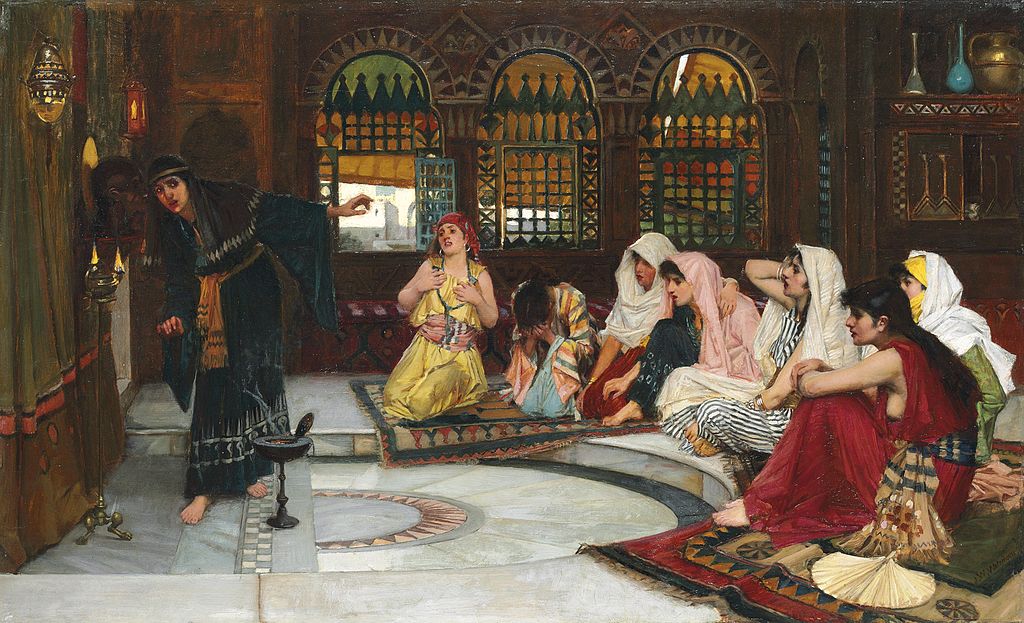Most of the time we resolve tasks in a binary fashion - the result is either success or failure. Cypher gives an option to graduate the success on failed rolls, aka the “failing forward” technique.
Dramatic Task Resolution
But what about all those times when a fail is a fail, and we as GMs shrug and inform the player her attempt was not a success? Cypher asks for rolls only when there is a chance of failure and a chance of success. If one of these two conditions is not met, there is no need for a roll - it is either routine or impossible.
Most GMs take this condition a step further where they look for a chance of exciting failure or exciting success for a roll to happen, reasoning if there is no tension in the scene, then instead just move the story forward to a place that has it.
The main problem is that someone needs to figure out the exciting part, and by someone, I mean the GM. Here are a couple of examples that might help get into this kind of thinking, and later we will touch on some potential problems that come with interesting failures.
Example Scene
A player wants her character to scale a wall. A pretty simple scene, and as with any climbing tasks, it’s a perfect fit for graduated success, which we will take into an account. We already know the success outcome - the player character will be on the top of the wall. Here are some interesting failures to consider:
- She falls and loses some Might points.
- For a graduated success example, she might scale it but damage it a bit so that it’s harder for others in the party to climb it after her.
- Critical failure might mean that she falls and breaks her arm, or some of the gear she bears.
- She scales it, but drops her weapon.
These are all interesting, but we can get even more ideas if we know why she is scaling the wall, as the previous examples are missing her intent:
- If she was trying to hide, she broke her stealth while climbing it too loudly.
- She’s trying to break into a property unnoticed, but trips the alarm.
- If she was scaling it to get a better attack position, that advantage is now gone.
- If she was running away from a thing, the thing catches up.
Interesting Complications
You can already spot the first problem here, yes? Some of the examples above are story complications, where we should consider using GM intrusions.
Interesting failure must be a logical consequence of an unsuccessful attempt. It exists in a place between a fumble and a story complication. We don’t want to complicate the failure without handing out XP.

Scene Tension
I already mentioned that it’s easier to figure out fail states when we know the player’s intent behind an action. But there is also a question of scene tension. If the scene does not have any tension, it is much harder to come up with interesting states for player actions.
If we put our wall in the middle of nowhere, with no danger around it, no sense of urgency whatsoever, then we shouldn’t care about any failure states, and also our success state is not very meaningful. To quote CSR:
Skip the boring bits. Monte Games Cook
Managing Risks
So we’ve set up our wall scene with tension around it. The danger is imminent; the environment is treacherous, the clock is ticking. Now we’re talking! Our imaginary GM can now glimpse into the unfurling of space-time and gauge the spectrum of resolution states, from fumbles and failures to successes and major accomplishments.
Switch to the player’s view, and we come to our second problem. Failure being interesting now, it bears an additional risk. Failure doesn’t just mean that our player doesn’t make her climb - something might bite her ass off now!
This means that the GM must telegraph the danger and potential fail states so that the player is allowed to manage the risk appropriately.
Not That Good:
GM: You see a wall blocking your path.
Player: I scale the wall! rolls without effort and fails
GM: You don’t manage to climb quickly enough, and the monster bites your ass off!
Player: WTF !? table riot
Better:
GM: You see a wall blocking your path. The ground trembles, loose rocks are rolling down and devious groaning is getting closer and closer.
Player: I scale the wall!
GM: There is a chance you will not scale it fast enough before the monsters catch up. Loose rocks are also a problem; you might fall off and break something.
Player: I use all the effort I have! rolls with effort and fails
GM: You grab a loose rock, it breaks and you slide down a few meters towards the sharp, saliva-covered teeth. You manage to stop just out of their reach.
Holly Monte, that was a tense scene!
Sliding down was a natural consequence of a failed roll, and now you can complicate the scene further with GMIs, unless the whole thing was GMI-ed in the first place. Note how we didn’t let her slide all the way down into the hungry jaws, that would be a critical fail. We leave the danger to loom over the scene until the beasts get their turn. Our player was aware of the risks, gave her best and failed. In this example our fail state was exciting but logical, and the danger was telegraphed in advance.
What About Combat?
Hitting and avoiding hits is one of those binary things, they either happen or not. Cypher recommends against using graduated success in combat, but lets shake it up a little.
Consider a grappling move. A player wants to grab an opponent and bring him into submission. I already wrote about Combat Maneuvers in depth (spot how we deal with failed states in that article).
Player: I jump to grapple him into submission!
GM: There is a chance he evades your move and gets into a better position for his next attack. If you critically fail, you might get your face smashed. For minor success, his effort to break free will be hindered. On a major success, you got the mofo, and get a free attack.
What we did here is create an interesting and meaningful choice for the player. Her risky move can have a big payoff, but she can also get smashed really hard. Don’t take this grapple mechanic to heart, it was just for illustration purposes.
Social Encounters
The technique is a godsend for social ecnounters, especially in situations where players are draining the life out of your NPCs. Trying to haggle for better prices with a merchant? On a fail, you will get worse prices. Persuading some poor soul into doing your bidding? On a fail, he will nope out and lower his disposition. Bothering the barista with a million little questions? There is a chance he gets actually pissed.
Have failures bring life to your NPCs, and make them seem more real and exciting. It will be more interesting to players as well, as sometimes the risk will pay off, and sometimes they will be worse off.
In Conclusion
Thinking about failure states will help you craft more exciting scenes, so make sure you include this information in your exposition. Keep failures as logical consequences of player actions, and use GMIs for story complications. Announce possible resolution states before the roll is made. Skip the boring bits.


Comments